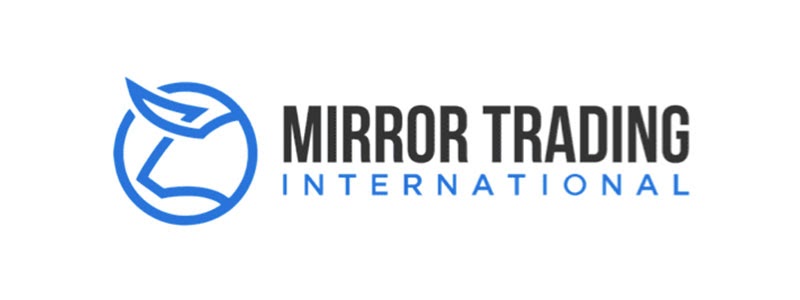If you’re involved in the crypto community, and especially the one in South Africa, chances are good that you heard of Mirror Trading International (MTI). The trading platform has since been liquidated, however only after taking us on a wild goose chase. Come along for the ride as we look at what is Mirror Trading International and what went wrong.
What Is Mirror Trading International?

The company allegedly used AI-based trading to grow client’s Bitcoin investments. Their slogan revolved around growing your Bitcoin daily. First red flag. The company claimed in various Youtube videos that they made a daily average profit of 0.58% over 100 days, or 10% per month. As the company was only founded in 2019 that would mean that they were either trading with their own money, using stats from trading prior to the company launching or that the numbers were falsified. The company also doesn’t shed light on what exchanges they use or what pairs they trade on. Second red flag.
When you look a little deeper at the company, you’ll notice that they don’t charge transaction, administrative, or withdrawal fees, but they claim to hand out bonuses. As a business model, this sounds unsustainable. So unsustainable that the fact that the business had two offices is baffling. One was located in Stellenbosch while the other in Johannesburg. Why would you need two offices for a predominately server-run operation?
Another bizarre twist is that the company was regulated by the Consumer Protection Act in South Africa. If they were investing via AI and/or algorithms, as they claim, they should have been regulated by a financial watchdog (we’ve stopped counting the red flags).
On 17 December, South Africa’s Financial Sector Conduct Authority (FSCA) released a statement with the following: “MTI and its senior management are conducting an illegal operation, misleading clients and have contravened several laws.” This was released shortly after CEO Johan Steynberg fled the country. According to the company, he left following a security breach that required him to move information from their current servers to new ones. There is currently no evidence to support this, and is disputed later on.
The FSCA first indicated that the company was perhaps a scam, advising investors to stay away, in August 2020 when they issued the company with a securities fraud warning. Shortly after this, in September, a data breach occurred where “anonymous_za” leaked that the company only had 7331 BTC ($80.2 million at the time) in reserves while they owed 17,247 BTC ($188.7 million) in withdrawals. It is believed that the company took in investments in an excess of $60 million. MTI has been described as a ponzi scheme operating in South Africa, the U.S. and Namibia, where they are not registered to be offering any kind of financial service.
In October, the FSCA conducted a raid on MTI’s premises and seized electronic and telephonic records from cell phones, notebooks, and PCs, from both offices and residences linked to the company and management.
Another twist in the plot is that the “head of communications” at MTI, Cheri Mark, formerly Cheri Ward, was previously involved in the Global BTC Team. This company was also considered to be a ponzi scheme that robbed investors of over $80 million, investigated by the Hawks in 2018. BTC Global Team’s founder also mysteriously vanished when shit hit the fan, however many believe he was ficticious to start with. The investigation continues. When the same person comes up as top management in two crypto ponzi schemes, there’s definitely something fishy going on.
In December, MTI was liquidated following the investigation and the fact that it was not processing any withdrawals. Cheri Marks conveniently released a statement that said only the CEO Johann Steynberg could answer questions regarding investors’ Bitcoin. Steynberg has been missing since 14 December, after Marks allegedly advised against his departure.
While the FSCA have concluded their investigation, the whereabouts of Johann Steynberg remain a mystery. The National Prospecting Authority will now complete the liquidation and handle the ensuing distributions.
Red Flags – How To Spot Crypto Scams
Many people looking to make an income during the Covid-19 pandemic were taken advantage of by this degenerate company. Make sure you’re never one of these people by taking note of our tips to use when looking for red flags.
- Look for information on how the company is regulated, and by who. Any company trading on your behalf needs to be regulated under the laws of their country, and yours.
- Look for the word “risk”, this should always appear on the website of any reputable investment company relating to cryptocurrency investments. If they’re hiding that, they might be hiding something else.
- Read the reviews, whether on Google or a crypto review platform. Always check them out before signing up, and certainly before parting ways with your cash.
- Speak to friends, family, and other traders when looking to try something new. Avoid paid marketing and influencers that are obviously making money from the platform.
- If anything looks suspicious, do your own research and rather err on the side of caution.
- And as always, if something sounds too good to be true – it generally is.
What Went Wrong
Targeting users looking to make some money, too many investors fell for this ponzi scheme’s get-rich-quick bait. Generally as South Africans we’re vigilant and careful, however in the case of what is Mirror Trading International, many were duped by promises of strong returns and false advertising. Stay safe out there, South Africa.


